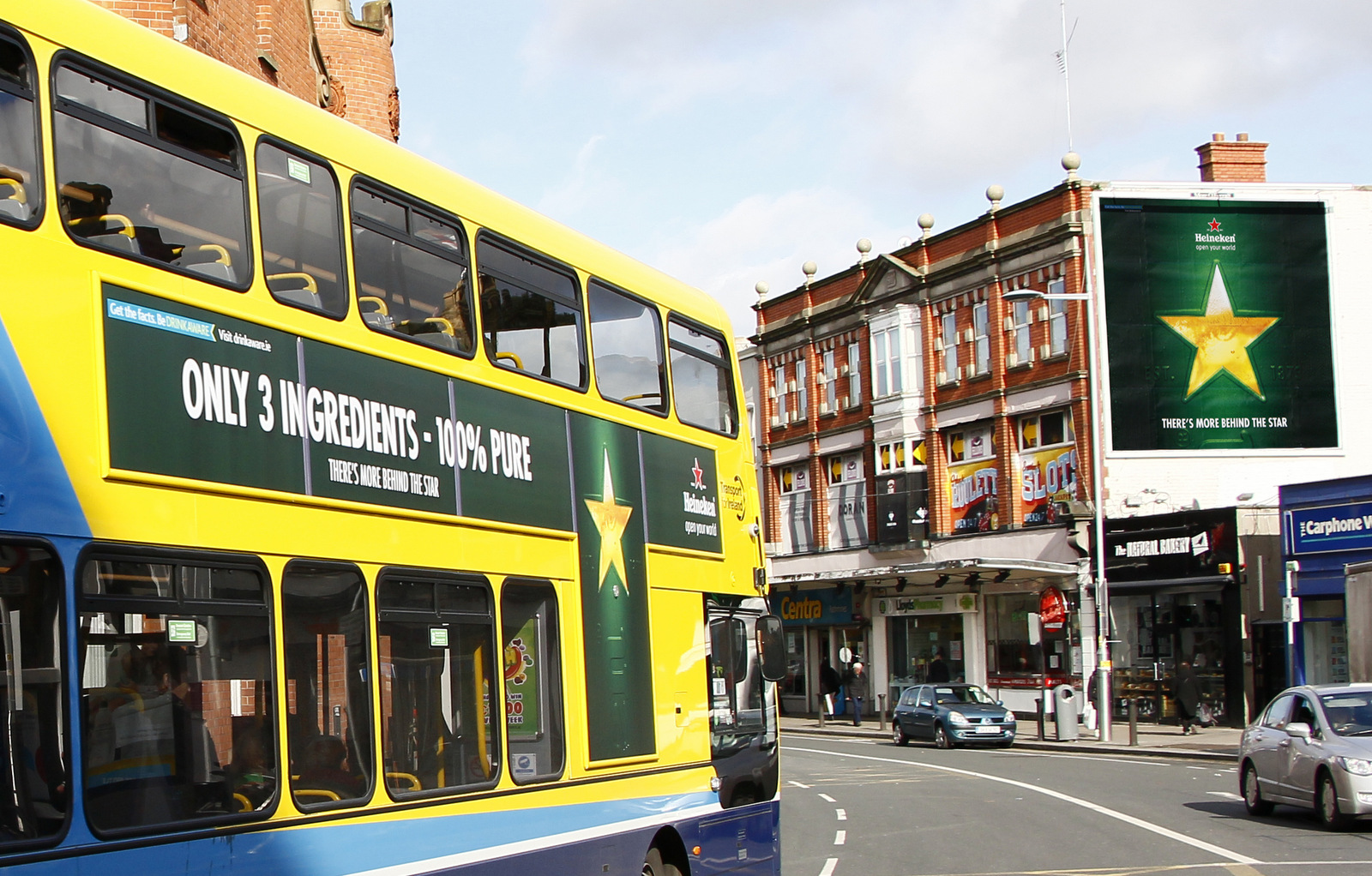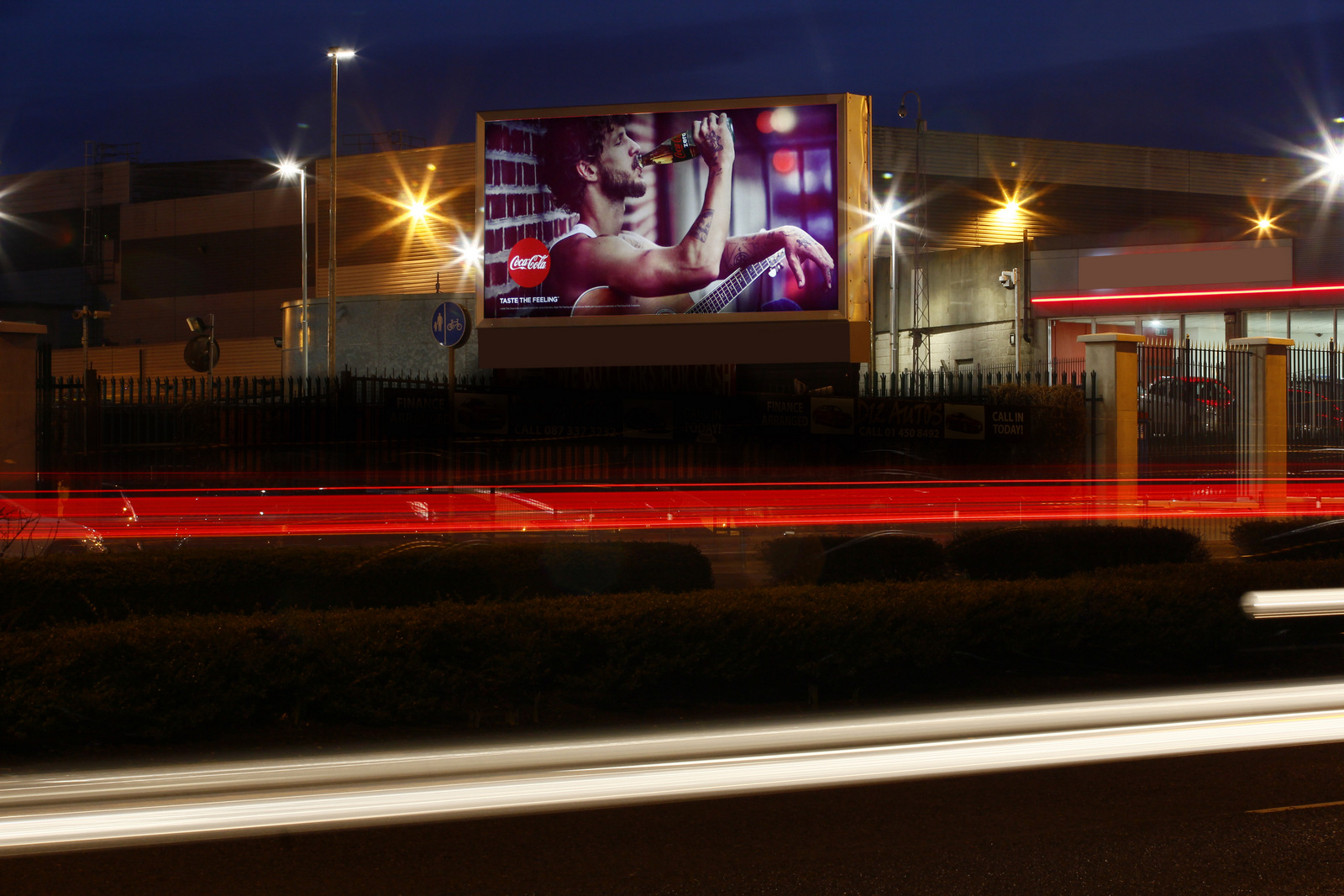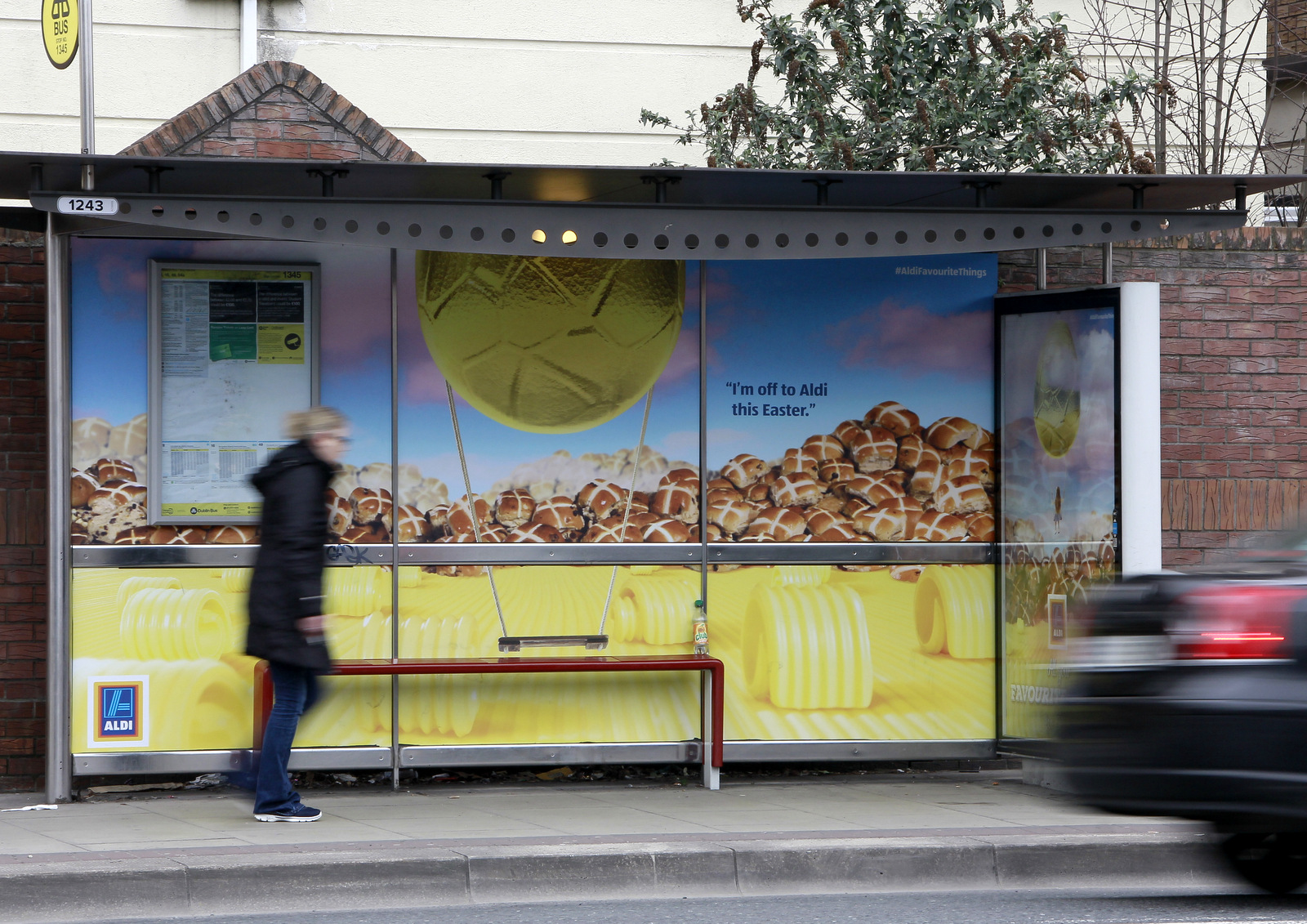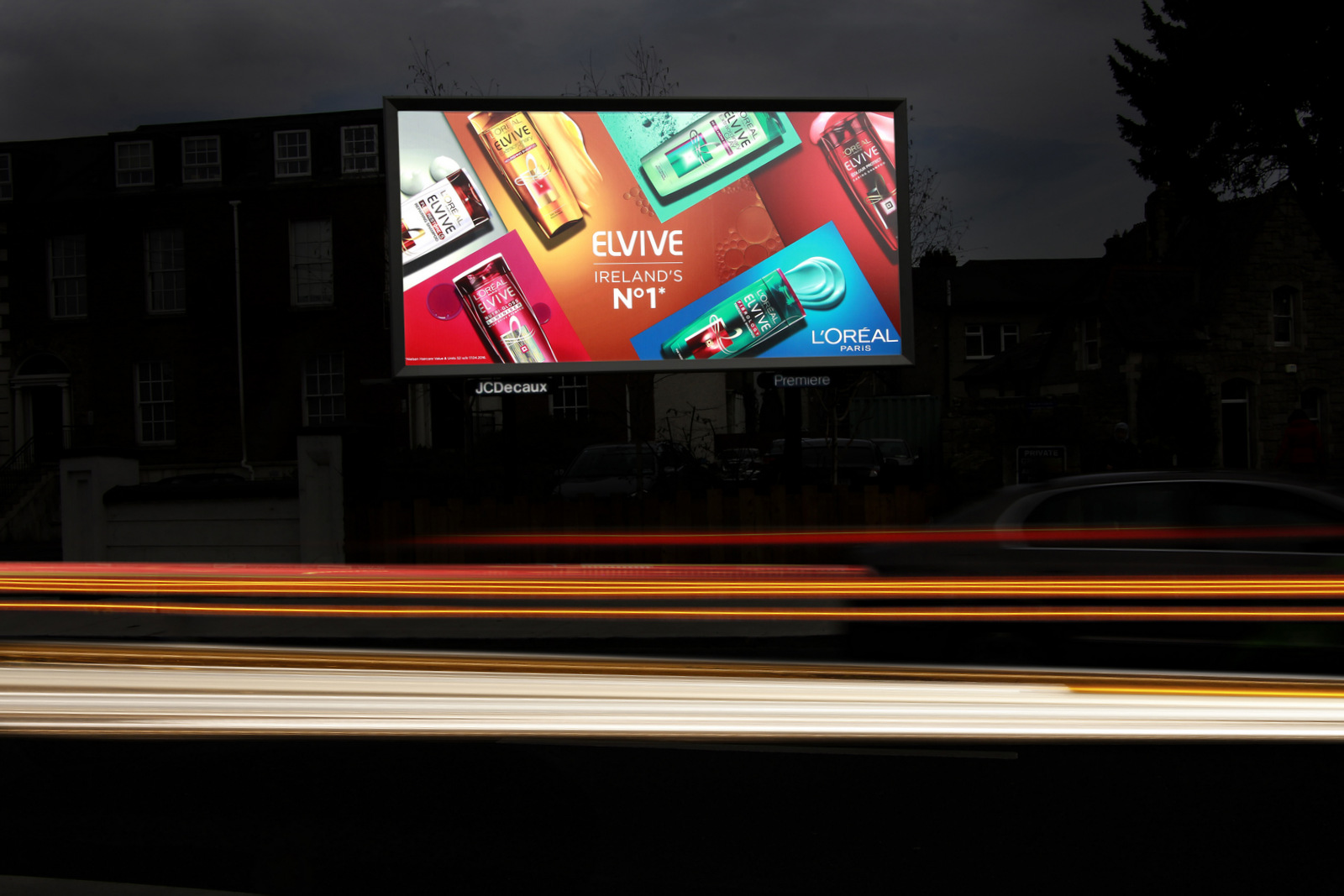 The buoyant Out of Home (OOH) shows no signs of abating this year with €54m spent by advertisers across large format billboards, 6 sheets, digital OOH formats, transport and targeted media in the first six months of the year according to a new report by Kinetic, the OOH media agency.
The buoyant Out of Home (OOH) shows no signs of abating this year with €54m spent by advertisers across large format billboards, 6 sheets, digital OOH formats, transport and targeted media in the first six months of the year according to a new report by Kinetic, the OOH media agency.
“The Out of Home industry is in good health. The media owners over the past number of years have invested heavily in their formats and are now reaping the awards as the economy improves. Large format lightboxes have given the medium a boost and increased the quality offering. Digital OOH continues to perform strongly as advertisers are taking advantage of the flexibility it offers. For example, while many advertisers are using digital OOH for full two week cycles, there are more campaigns using day-part messaging or reacting to changes in weather or temperature. Contextual digital OOH is gaining in popularity and advertisers like the ability to localise and broadcast a reactive message. The capital expenditure required is significant, but the ability to facilitate multiple advertisers is attractive,” says Simon Durham, CEO of Kinetic.
He points out that the growth in OOH has been fuelled by improved quality, growth in digital and innovation. There has been a significant increase in the number of cars on Irish roads with 2.5 million recorded, and an increase of 3.6% in total public transport passengers, which has directly resulted in attracting more advertisers to OOH. The roll-out of lightboxes and Premieres (premium backlit large format billboards), and continued reduction of prismatics or wave machines have also contributed to an increased spend across OOH formats. Large format billboards now account for 32% of total spend while Digital OOH as well as 6 sheet formats at bus shelters and outside supermarkets & convenience stores took 45% of total spend.
 Drink, encompassing alcoholic beverages, soft drinks and also hot drinks, continues to hold number one spot as the largest category in OOH, accounting for 18% with a total spend of €9.5m. Diageo was the top advertiser in H1 2016 with spend of €2.9m. Heineken and Irish Distillers Pernod Ricard also featured in the top advertisers spending €1.8m and €1.4m respectively. Coca-Cola saw spend in increase across H1 2016 and also was the top unprompted recalled campaign, according to Kinetic’s post campaign service, Researcher. The overall scoring campaign in terms of recall, liking, understanding and call to action was Heineken.
Drink, encompassing alcoholic beverages, soft drinks and also hot drinks, continues to hold number one spot as the largest category in OOH, accounting for 18% with a total spend of €9.5m. Diageo was the top advertiser in H1 2016 with spend of €2.9m. Heineken and Irish Distillers Pernod Ricard also featured in the top advertisers spending €1.8m and €1.4m respectively. Coca-Cola saw spend in increase across H1 2016 and also was the top unprompted recalled campaign, according to Kinetic’s post campaign service, Researcher. The overall scoring campaign in terms of recall, liking, understanding and call to action was Heineken.
 In second place stands Retail accounting for 17% of overall activity with a total spend of €9.2m, and also saw the highest category increase compared to the same period last year. This was due to heavy spends from fast food outlets and also supermarkets; Lidl Ireland GMBH (€888k), Tesco Ireland (€853k) and Aldi Stores Ltd. (€510k). Household Services was the third biggest spender accounting for 11% of the overall OOH market. Broadband providers continue to battle it out with BskyB coming out on top with €2m, while Virgin Media invested a total of €695,000.
In second place stands Retail accounting for 17% of overall activity with a total spend of €9.2m, and also saw the highest category increase compared to the same period last year. This was due to heavy spends from fast food outlets and also supermarkets; Lidl Ireland GMBH (€888k), Tesco Ireland (€853k) and Aldi Stores Ltd. (€510k). Household Services was the third biggest spender accounting for 11% of the overall OOH market. Broadband providers continue to battle it out with BskyB coming out on top with €2m, while Virgin Media invested a total of €695,000.
The second highest category increase in spend came from Government, Social and Political Organisations, up 101% compared to this time last year. This is primarily due to the General Election in February with spend across political parties amounting to approximately €340,000. The CSO was active with campaigns totalling €239,000 across April for Census 2016. An increase in activity across L’Óreal haircare and beauty products, resulted in Cosmetics and Toiletries been named as the third highest category increase.
 “Kinetic estimates a continued optimistic performance by the OOH market over the next 12 months. However, there are three factors that could have a significant impact. Increased restrictions will be imposed when planning OOH campaigns for alcohol clients which will limit us in terms of site selection and location. In a similar vein, restrictions on high fat, salt and sugar products could also be implemented. The impact of Brexit on the Irish economy, as a whole, has yet to be realised, but the OOH industry will be watching along with the rest of Europe,” says Durham.
“Kinetic estimates a continued optimistic performance by the OOH market over the next 12 months. However, there are three factors that could have a significant impact. Increased restrictions will be imposed when planning OOH campaigns for alcohol clients which will limit us in terms of site selection and location. In a similar vein, restrictions on high fat, salt and sugar products could also be implemented. The impact of Brexit on the Irish economy, as a whole, has yet to be realised, but the OOH industry will be watching along with the rest of Europe,” says Durham.






















